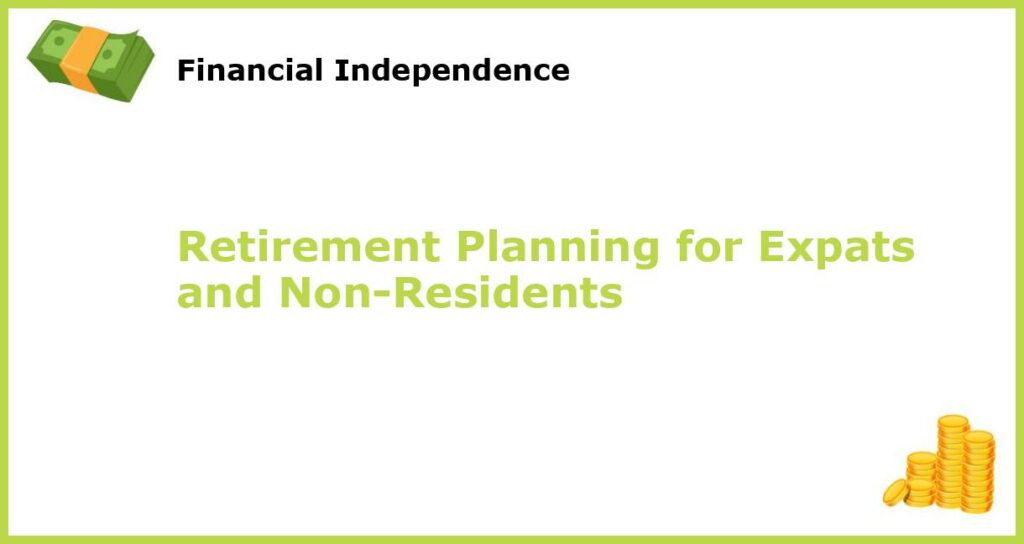Retirement planning can be overwhelming, even for locals. For expats and non-residents, retirement planning is even more challenging because they face several unique issues. Among these issues include currency exchange rates, tax implications, and constantly shifting investment conditions. To overcome these obstacles, it is ideal to seek advice from a financial adviser. This article provides ten effective retirement planning tips for expats and non-residents.
Start Planning Early

There is never a wrong time to start planning for retirement. Individuals who are non-residents or expats must be especially proactive in saving for their retirement. Creating a budget is the first step to planning a retirement. Once the savings have been allocated, the next step is to set up a savings plan that utilizes tax-free or tax-deferred savings opportunities that are available wherever they are located. They should pay attention to tax laws where they are located because it could affect their savings plans.
Regularly Review Your Retirement Plan

After creating a retirement plan, it is important to carry out a revision regularly. This is especially true for those who recently relocated to another country or underwent a financial change. It is essential to make regular reviews of their plan to ensure they are on the right track to meet their retirement objectives.
Consider the Economic and Political Environment

Changes in political and economic factors will have a significant influence on retirement planning. As such, it is important to stay up-to-date on the political and economic environment of their host country. As a result, they can make informed decisions about their retirement plans and investment portfolio.
Diversify Your Investments
Diversifying investment portfolios is essential for protecting retirement funds. Instead of investing in a single asset class or region, individuals must disperse their investments across different sectors and geographies. This will help to minimize risk and protect their retirement savings from market fluctuations.
Understand Your Company’s Retirement Plan
Before investing, individuals must understand their employer’s retirement plan. This would help them discover how much their employer is contributing to their retirement savings and the requirements necessary to qualify for these contributions. Furthermore, they should take advantage of any matching contributions because it can assist them in saving more.
Maximize Your Savings Opportunities
Expats and non-residents have access to tax-free or tax-deferred retirement savings accounts such as individual retirement accounts (IRAs) or 401(k) plans. Furthermore, as an expat, they may be entitled to foreign tax credits. Utilizing these accounts and taxation rules can help minimize taxes and enable them to save for their retirement.
Consider Inflation and Your Retirement Income Needs
Inflation can erode the value of your retirement savings. It is critical to plan for inflation and their retirement income needs. As a result, they must consider their retirement expenses such as housing, healthcare, cost of living, etc. This would assist them in creating a realistic plan based on these factors.
Stay Up-to-Date on Investment Trends and Strategies
As an expat or non-resident, the investment landscape is continuously evolving. As a result, they must stay up-to-date on investment trends and strategies to make informed decisions about their retirement portfolio. They must be positioned to take advantage of retirement savings opportunities as they emerge.
Stay Flexible and Open to Change
Retirement planning is adaptable, and it requires flexibility and an openness to change. As an expat or non-resident, they may have to modify their retirement strategies as their circumstances change. They must be open to new ideas and strategies, seek advice from a trusted financial advisor to navigate the complexities of their retirement planning.







